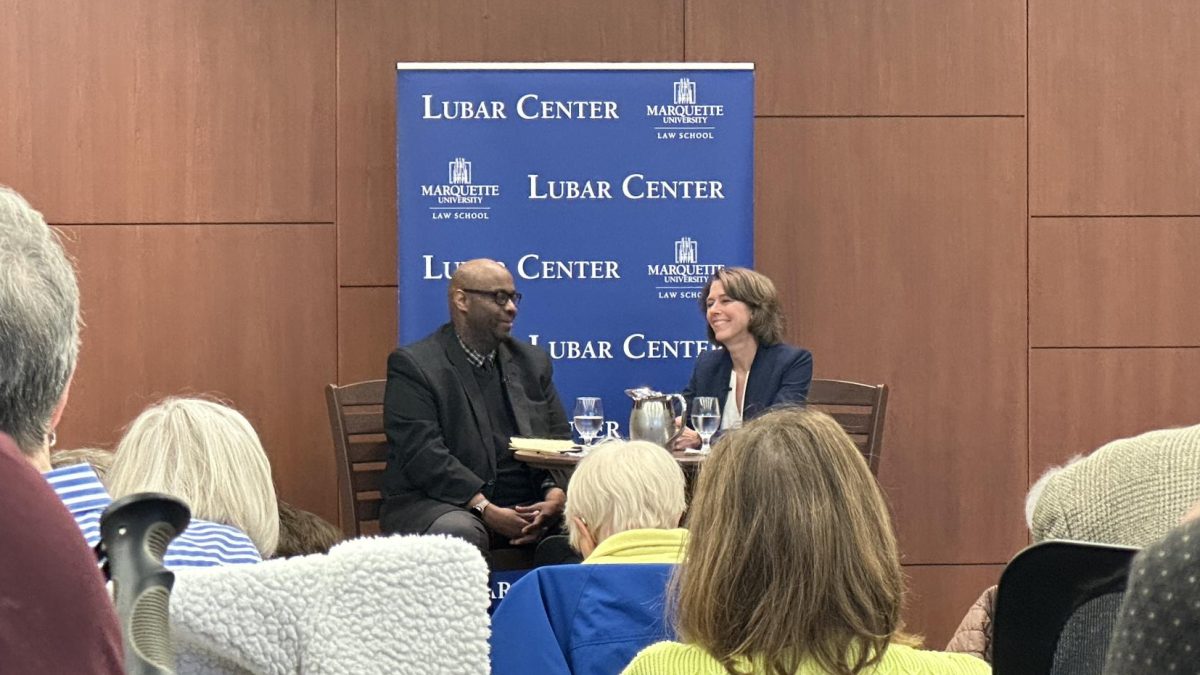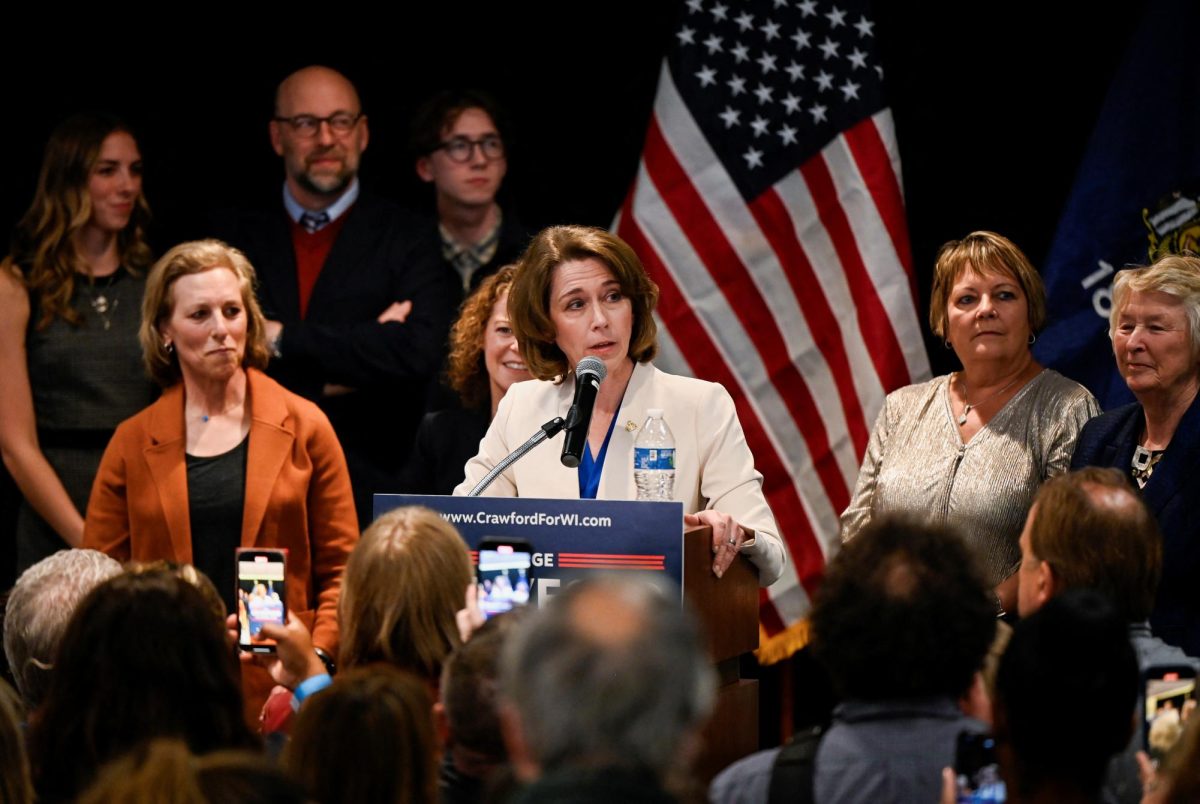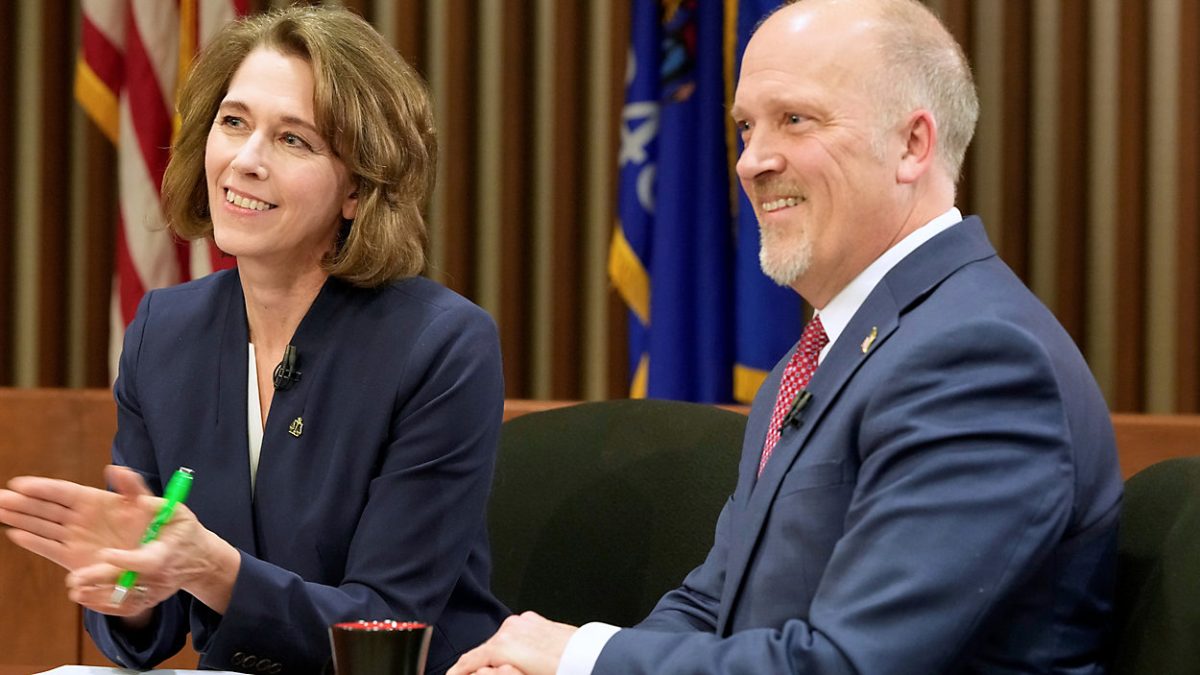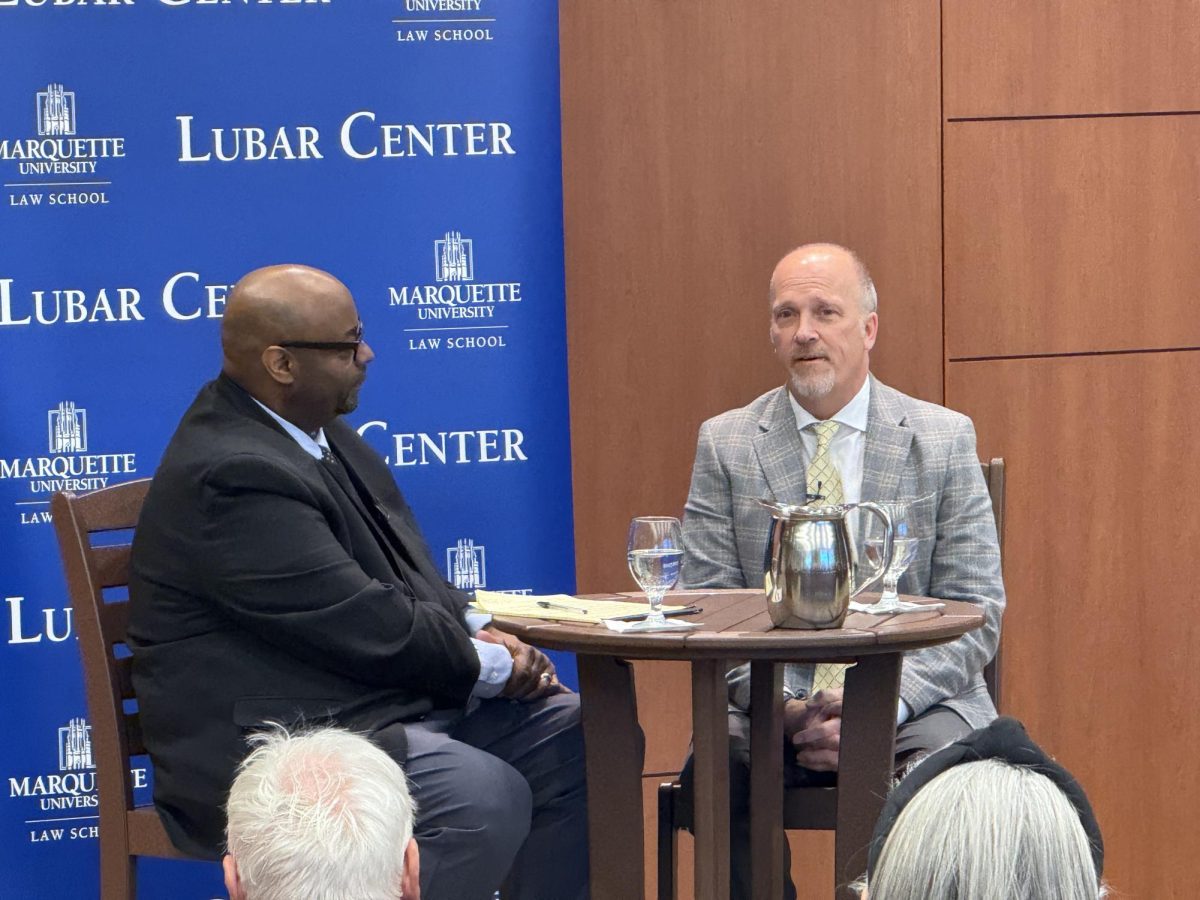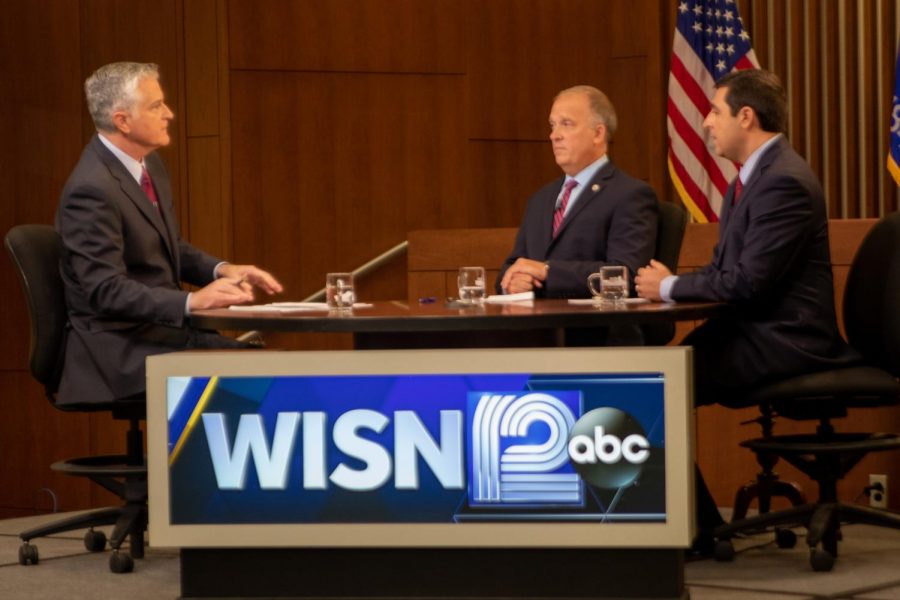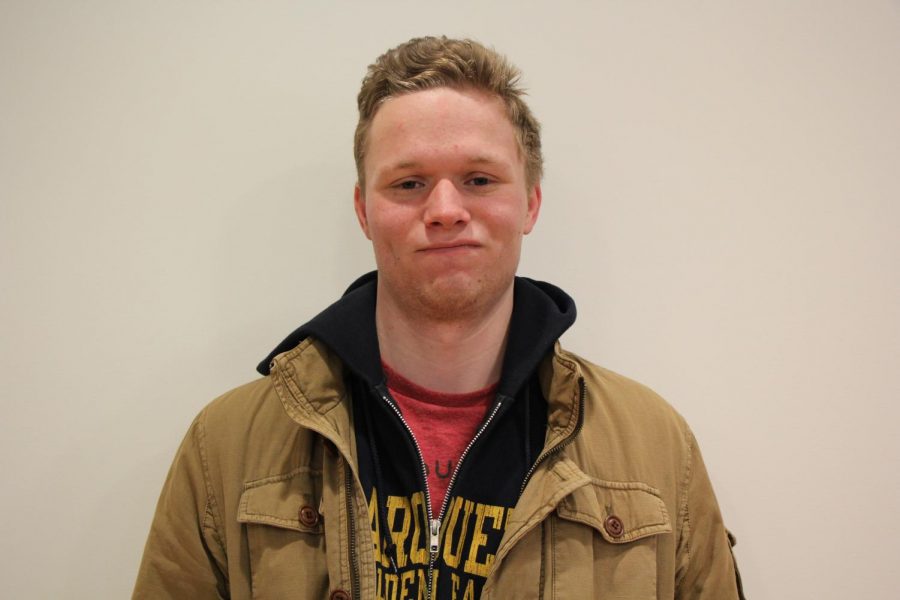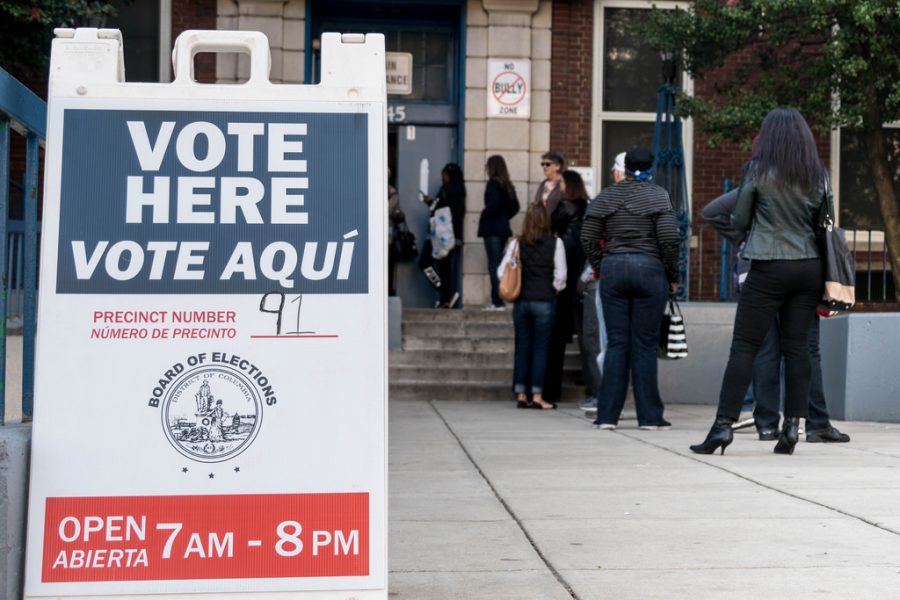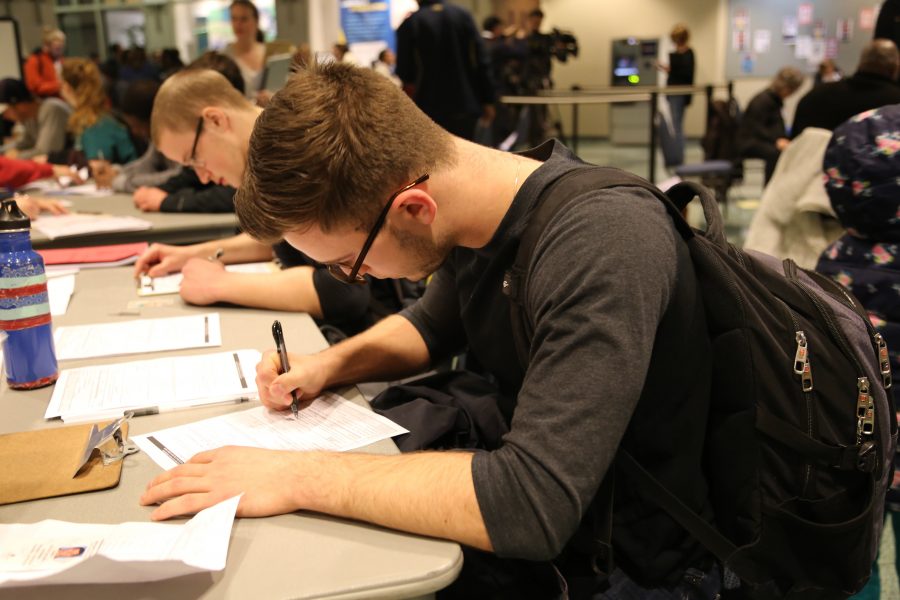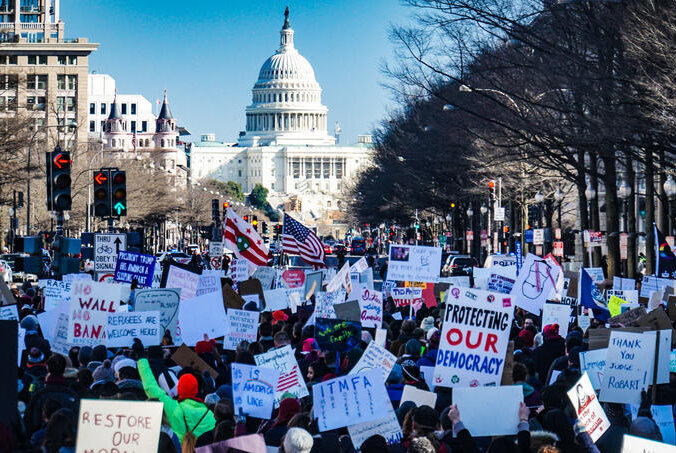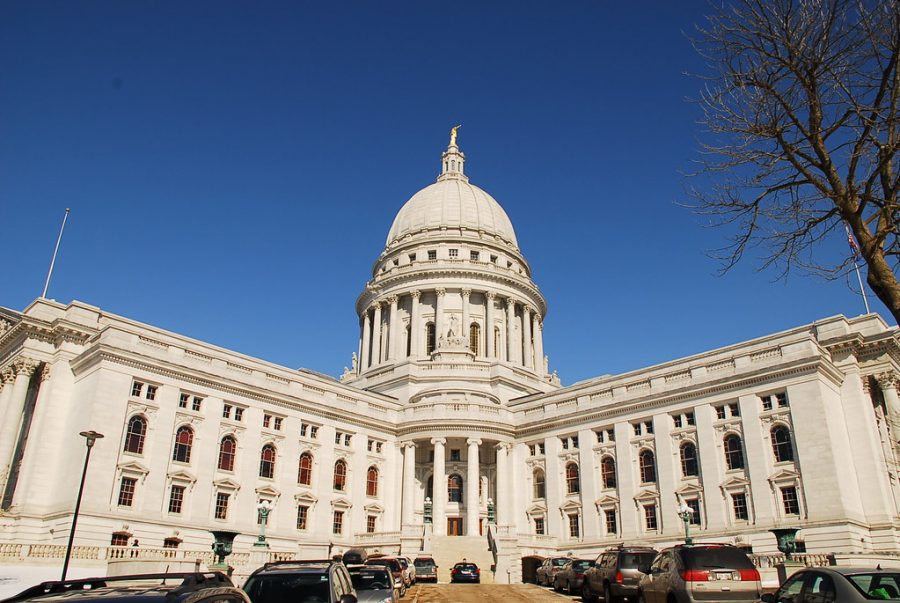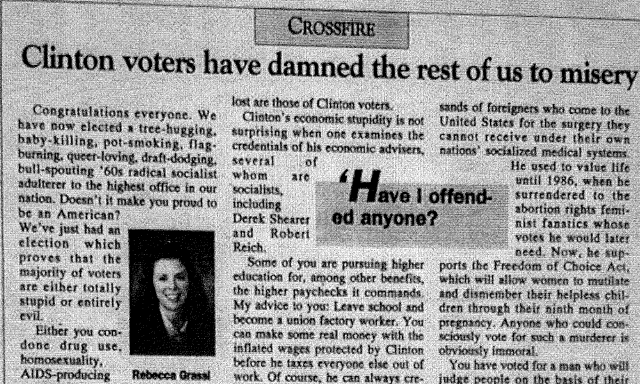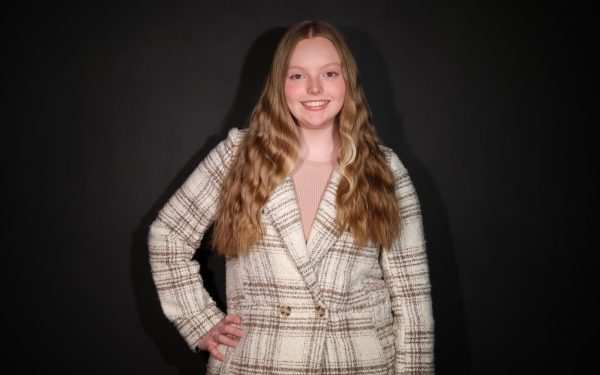Fair, impartial, common sense.
Those are the three principles Dane County Judge Susan Crawford has claimed to base her 2025 State Supreme Court campaign around.
As voting season ramps up again in Wisconsin before the April 1 election, Crawford paid a visit to the Marquette University Law School’s Lubar Center to speak with Director Derek Mosely about her campaign principles, backstory, future plans and more.
“I need to keep my head on straight and keep my head high and just continue to tell people, like all of you here, why I’m in this race, what kind of experience I bring to it and why I think I’d be a good justice on the Wisconsin Supreme Court,” Crawford said.
Crawford’s visit to Marquette as part of the Lubar Center’s “Get to Know” series followed that of her opponent, Waukesha County Judge Brad Schimel, which took place on Feb. 18.
Ten days later in Eckstein Hall, nearly every seat in the Lubar Center was full, with hundreds of individuals of all ages waiting to hear what Crawford had to say and ask their own questions.
“I think face-to-face is the best way to engage somebody’s character,” Silas Petrie, a third-year law student at the Marquette Law School, said. “I really value that opportunity to get to know them.”
Background and early career
Crawford, who grew up in Chippewa Falls, Wisconsin, first explained how she had a passion for education before becoming a judge. She attended Lawrence University with a focus on college education and went to graduate school before realizing teaching was no longer her biggest passion.
So, after finishing a master’s degree at Indiana University, Crawford took time off to reassess her future and navigate the best route to becoming more involved in solving problems she saw in her communities.
“Throughout my career, I’ve always wanted to be where I could do the most good and be the most helpful,” Crawford said.
That desire to help others brought Crawford to the University of Iowa College of Law, where she took many elective courses and became editor-in-chief of the International Law Journal, something she considered a passion project.
Crawford’s professional career began as an assistant attorney general at the Wisconsin Department of Justice. Then she served as a prosecutor in state government before becoming a private practice attorney. Finally, in 2018 she was elected to sit on the Dane County Circuit Court Branch 1.
Fair
Crawford said that through volunteer work she has done on the statewide court committee, she has had opportunities to work with other judges from across the state.
“We don’t ask each other, ‘Are you Democrat or Republican? Are you conservative? Are you liberal?’” Crawford said. “[We] just get to work and solve problems or put on the programs that are needed to educate judges, and I’ve really appreciated the amount of hard work most judges put into their jobs.”
Crawford also sees a lot of individuals who cannot afford lawyers come into the courts without one. She explained how there are some, but not enough, resources in place to help defend people in these situations, so she would advocate for more affordable legal services.
While there are limits for advocacy under the judicial code barring judges from getting involved in certain policy decisions, Crawford said supporting legislation for low-cost legal services is acceptable because it directly involves the courts.
Impartial
As a judge, Crawford said she is careful to not make a decision until she has heard all the evidence and done her own research on the law, a practice she claims she would continue if elected to the Wisconsin Supreme Court.
Crawford also detailed an instance when she knew someone on a circuit court case and removed herself from the case to remain impartial. She said this mindset would apply to any cases where she feels strongly about a certain policy.
“If I felt that I had some personal stake or bias, I would not sit on the case. I think that is a basis to recuse,” Crawford said. “As a judge, you learn to check yourself and make sure that you’re able to make fair and impartial decisions.”
Additionally, Crawford said she has attended personal trainings to examine the personal biases she brings to her decisions, including one with Mosely. She mentioned how she does not make decisions based on what she reads or sees in the media.
Common sense
Pragmatism is a philosophical problem-solving approach that focuses on reality, rather than ideal theoretical outcomes. That approach is what Crawford bases her “common sense” campaign principle around.
“I’m closely examining what my legal decision is going to do and how it’s going to affect the parties in front of me,” Crawford said.
Crawford further explained her judicial philosophy by detailing how she strives to apply laws in the ways they are intended, to protect the rights of Wisconsinites.
Campaign backlash
Crawford was asked about donations from liberal mega donor George Soros and Illinois Gov. J.B. Pritzker amidst backlash toward Schimel about donations from billionaire Elon Musk. Soros and Pritzker contributed $1.5 million to the Crawford campaign.
Crawford did not directly comment on those donations.
“We’ve had contributions from literally tens of thousands of both Wisconsinites and people outside the state that are interested in seeing what happens with Wisconsin,” Crawford said.
Regarding Musk’s multi-million-dollar donations to Schimel’s campaign, Crawford said it is concerning that Musk has been so involved in the election as “an unelected right-hand person to the president.”
“When I was a kid growing up in Chippewa Falls, I never thought I would be fighting against the world’s richest man, but here we are,” Crawford said.
Marquette students react
Students like Petrie, the third-year law student, made up a number of the attendees at Crawford’s “Get to Know” event, some seeking answers to their campaign-related questions and others wanting to know more about the candidates’ personalities.
Petrie attended both Crawford’s and Schimel’s visits to the Lubar Center and was pleased with how both candidates spoke. He said he witnessed Schimel field more adversarial questions and Crawford answer more technically difficult questions.
“I think they will both be excellent justices,” Petrie said. “Wisconsin is in a really good spot.”
Despite the election being nonpartisan, some politically-affiliated students have chosen their side. Elliot Sgrignuoli, a junior in the College of Arts & Sciences and president of the Marquette College Republicans, explained his group is supporting Schimel because they feel he will leave politics out of decision-making.
“Crawford has no intention of avoiding politics and will use them throughout her rulings,” Sgrignuoli said in an email. “A vote for Susan Crawford will create a more dangerous Wisconsin.”
Petrie considers himself an issues voter rather than a partisan voter. He said it is important for college students to learn how to do proper research and befriend those of different political affiliations in their formative years of young adulthood.
“I feel like if you do those things, you’ll just be a better, more informed member of society and overall, mentally more healthy,” Petrie said.
Coming up
The Marquette Law School will release the results of its first 2025 statewide poll at 12:15 p.m. on March 5 at Eckstein Hall, with the same information being published on the Marquette Law School Poll website at 1:15 p.m. that day.
Crawford and Schimel will both return to the Lubar Center at 7 p.m. on March 12 for a Wisconsin Supreme Court debate hosted by WISN. While registration for the event is closed, voters can watch the televised debate on WISN and other local broadcast channels across the state.
Voting for the Wisconsin Supreme Court election will take place on April 1, with polling stations open from 7 a.m.-8 p.m. Wisconsinites can also request to vote absentee by mail.
This story was written by Mia Thurow. She can be reached at mia.thurow@marquette.edu.
The Marquette Wire reached out to the College Democrats for a statement but did not receive a response before the time of publication.


